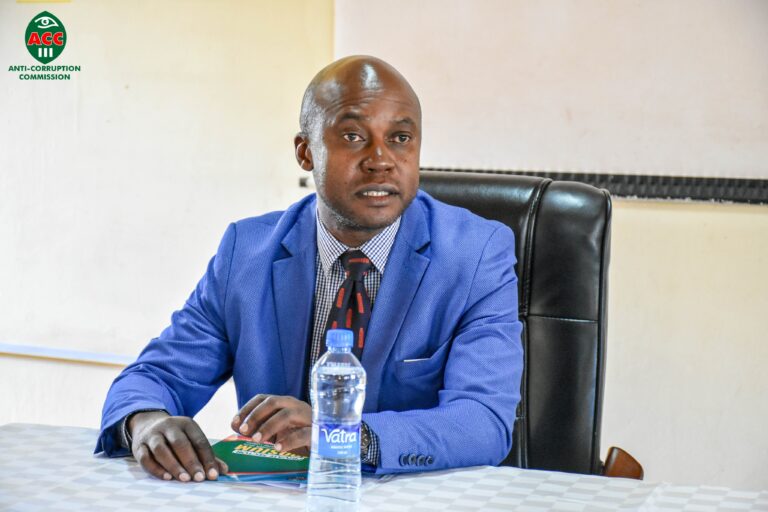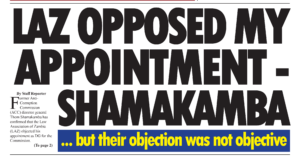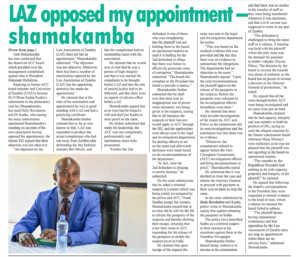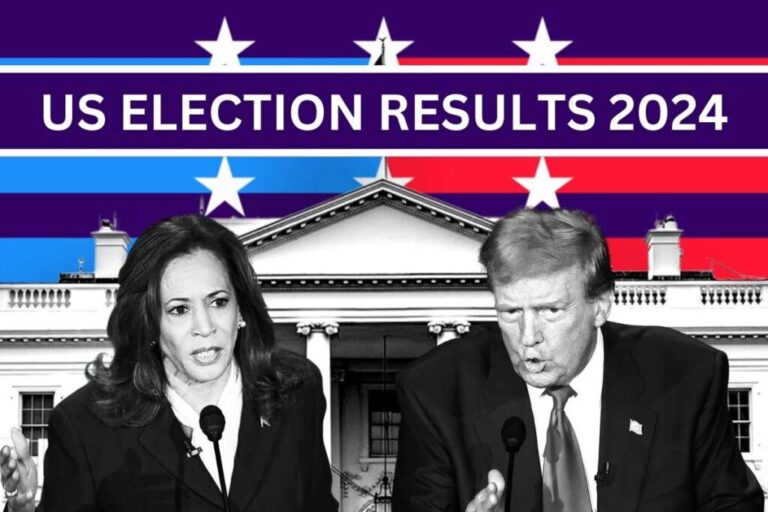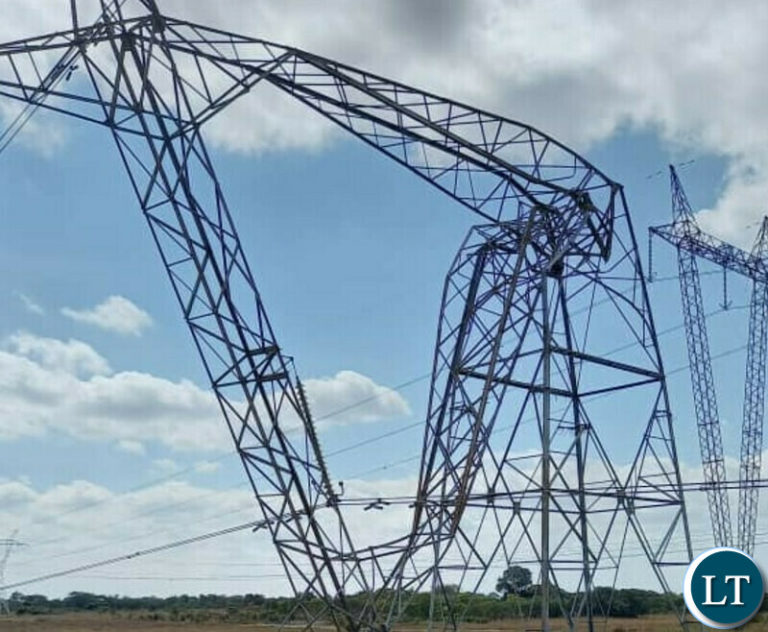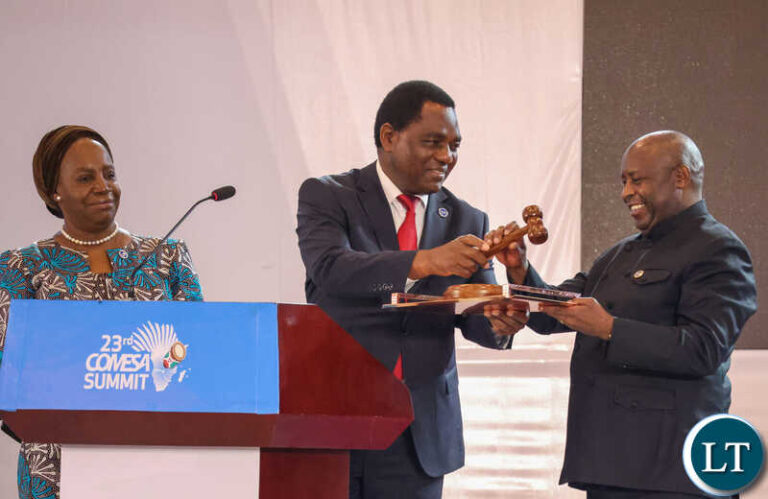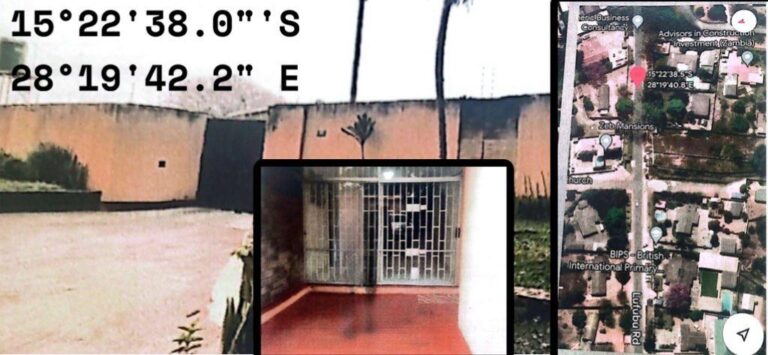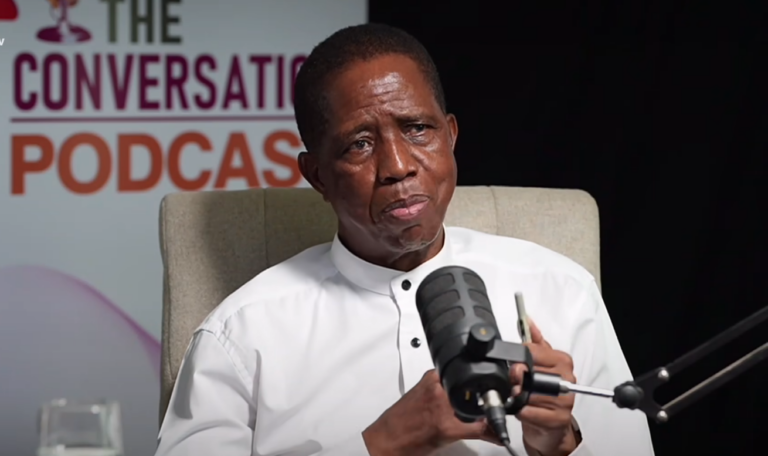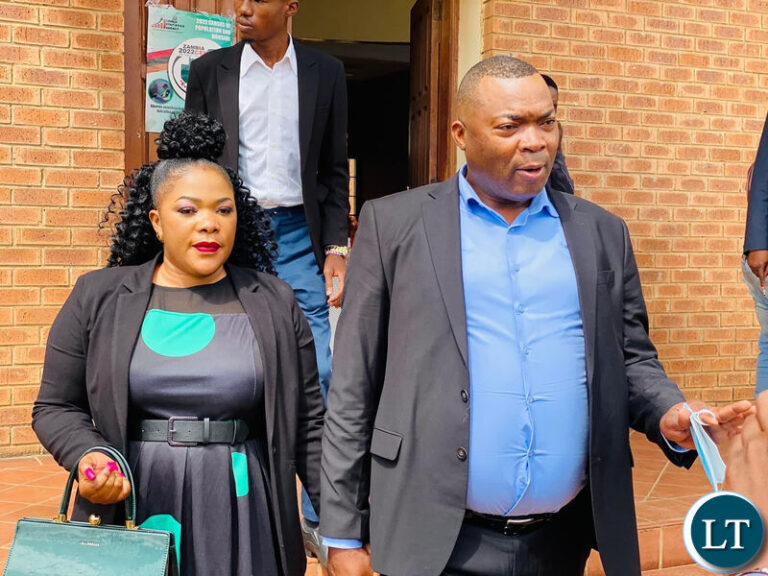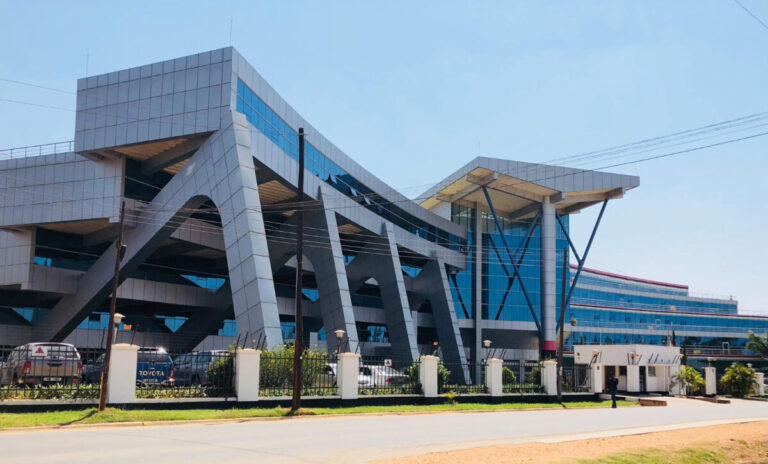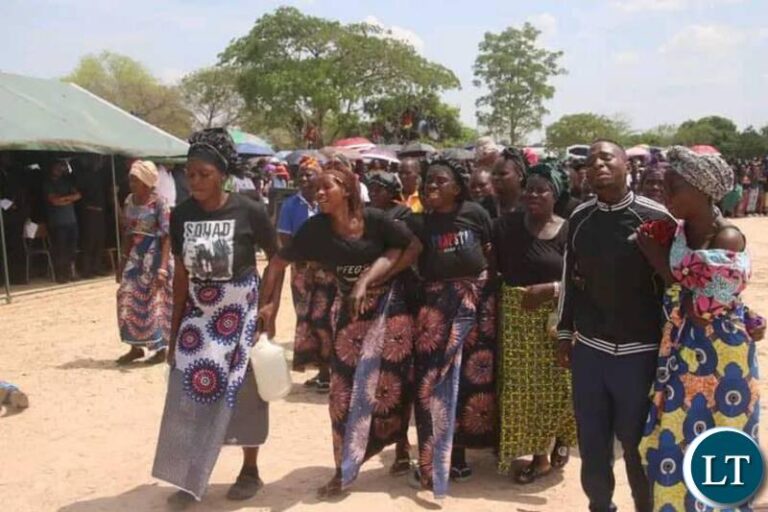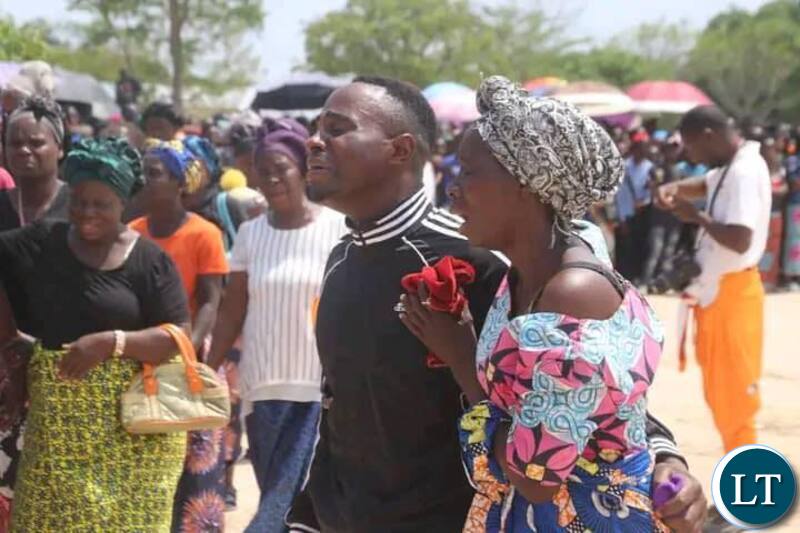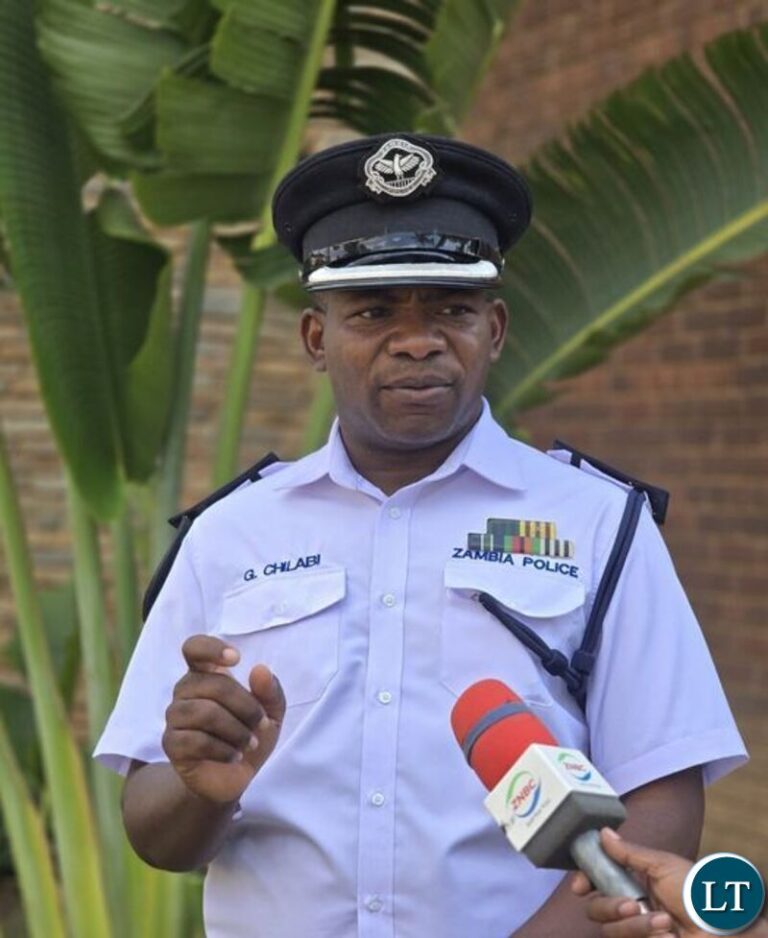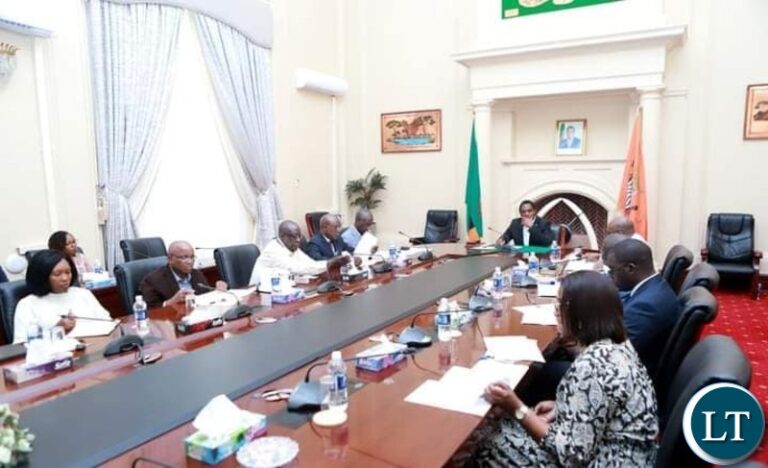The President Hakainde Hichilema, called for the 20th Cabinet Meeting in the Year 2024, on Monday, 28th October, 2024, at State House, to deliberate mainly on legislative matters on the implementation of the 2025 National Budget, including policy issues with the main aim of facilitating socio-economic development for the people.
Cabinet made the following decisions:
1. Legislative Matters – Bills approved for Publication and Introduction in Parliament:
(a) The Income Tax (Amendment) Bill, 2024.
Cabinet approved “The Income Tax (Amendment) Bill, 2024,” for publication and introduction in Parliament during the current sitting.
The objective of this Bill is to amend the Income Tax Act so as to, among others, permit the deduction of the skills development levy as a tax-deductible expense in advance of its payment to align with the accrual principles that apply for other deductions under the Act; provide an exemption on withholding tax on royalties; provide a waiver for a penalty arising from an underestimation of a provisional return; and mandate a person or partnership declared to be an agent to remit withheld tax before the return is due.
The current legal framework is inadequate in providing for tax matters relating to income tax. The Bill, once enacted, will result in the implementation of the annual budget for 2025.
(b) The Value Added Tax (Amendment) Bill, 2024.
Cabinet also approved “The Value Added Tax (Amendment) Bill, 2024,” for publication and introduction in Parliament during the current sitting.
The object of this Bill is to amend the Value Added Tax Act so as to, provide conditions for exemption of a taxable supplier or category of taxable suppliers from using the electronic invoicing system and revise conditions for input tax claims or deductions.
Currently, the Value Added Tax Act Cap. 331, empowers the Commissioner-General for Zambia Revenue Authority (ZRA) to exempt a certain category of taxable suppliers from using an electronic invoicing system. However, the Value Added Tax Act Cap. 331, does not provide the conditions on which the Commissioner-General may grant such an exemption, hence, the amendment to the law.
(c) The Customs and Excise (Amendment) Bill, 2024.
Another Bill approved by Cabinet for publication and introduction in Parliament during the current sitting is “The Customs and Excise (Amendment) Bill, 2024.”
The objective of this Bill is to amend the Customs and Excise Act, so as to, revise the rates of customs and excise duty payable on certain goods; revise the list of goods subject to surtax at importation and introduce a 10 percent excise duty on betting.
This Bill, when enacted, will lead to enhanced fiscal policy and regulatory framework regarding customs and excise duty, by optimising government revenue while supporting domestic industries and ensuring competitive pricing for consumers.
(d) The Mobile Money Transaction Levy Bill, 2024.
Cabinet also approved “The Mobile Money Transaction Levy Bill, 2024,” for publication and introduction in Parliament during the current sitting.
The objectives of this Bill are to, provide for the administration of the Act; provide for the maintenance of the records of mobile money operations and repeal the Mobile Money Transaction Levy Act of 2023.
Currently, the Mobile Money Transaction Levy Act is being administered by the Bank of Zambia and the need to repeal the Act has arisen in order to place the administration of the Act under the Zambia Revenue Authority and ensure efficient collection of the levy.
(e) The Zambia Revenue Authority (Amendment) Bill, 2024.
Cabinet approved “The Zambia Revenue Authority (Amendment) Bill, 2024,” for publication and introduction in Parliament during the current sitting.
The objective of this Bill is to amend the Zambia Revenue Authority Act, so as to provide for immunity for members of staff of the Zambia Revenue Authority. The Zambia Revenue Authority Act Cap. 321, does not provide for the immunity of members of staff of the Zambia Revenue Authority in respect of an act or thing done, or omitted to be done, in good faith, in the exercise or performance of their powers, functions or duties conferred on them under the Act.
(f) The Property Transfer Tax (Amendment) Bill, 2024.
Another Bill approved by Cabinet for publication and introduction in Parliament during the current sitting is “The Property Transfer Tax (Amendment) Bill, 2024.”
The objectives of this Bill are to revise the definition of intellectual property; and allow a money-lender and building society, to use the actual price received in determining the realised value for the disposal of foreclosed property.
Currently, the definition of intellectual property in the Property Transfer Tax Act is not aligned to the definition on the Statute Book. Further, the Property Transfer Tax Act is inadequate as it does not mandate a money-lender and a building society, to determine the realised value on foreclosed property based on the actual sale price, hence the need for the amendment of the law.
(g) The Insurance Premium Levy (Amendment) Bill, 2024.
Cabinet also approved “The Insurance Premium Levy (Amendment) Bill, 2024, for publication and introduction in Parliament during the current sitting.
The objective of this Bill is to amend the Insurance Premium Levy Act, 2015, so as to strengthen compliance by providing for the use of an electronic invoicing system. Currently, the Insurance Premium Levy Act of 2015, provides for the use of an electronic fiscal device to record a payment of a levy and the issuance of a tax invoice generated by an electronic fiscal device. The Bill, once enacted, will also strengthen compliance levels.
2. National Policies:
(a) State-Owned Enterprise Policy.
Cabinet approved, the Revised State-Owned Enterprise (SOE) Policy and its Implementation Plan, in order to strengthen the governance and legal framework for the improved performance and contribution of SOEs to the nation’s development agenda.
Cabinet has decided to have in place a policy that should resolve the many challenges faced by SOEs which include, the high fiscal cost of SOEs to the Treasury arising from SOEs continued reliance on the Treasury for recapitalisation and other financial support, thereby causing debt and fiscal instability to the Treasury and the fragmented ownership and institutional arrangement of SOEs that has resulted in ineffective supervisory and monitoring systems.
It is anticipated, therefore, that through the effective implementation of this revised SOE Policy, the institutional, governance and legal framework for SOEs will be strengthened, enabling SOEs to effectively deliver on their mandate and for Government to maximise public benefit in form of positive returns on investments, receipt of dividends from profit-oriented SOEs, and ensure cost-effectiveness in the delivery of goods and services.
(b) National Social Protection Policy.
Another policy approved by Cabinet during the Meeting is the National Social Protection Policy.
The aim of the policy is to ensure that social protection and social security are available, accessible, adequate, affordable, and transparent to all citizens in Zambia, including informal and rural workers. The Social Protection sector in Zambia has grown and has been characterised by several political, social and economic developments that have taken place.
In addition, several developments have taken place in the sector internationally, regionally and nationally, that need to be aligned in order to respond to the prevailing trends.
3. Ratification of the Agreement on the Southern African Development Community (SADC) Regional Development Fund.
Cabinet approved the ratification of the Agreement on the Southern African Development Community (SADC) Regional Development Fund (SADC RDF).
The SADC Treaty provides for the creation of a Regional Development Fund. Accordingly, SADC Member States are in the process of creating a Regional Development Fund to support infrastructure development, industrialisation and enhanced regional integration. Zambia signed the Agreement in 2018 and is now required to ratify the Agreement.
Ratifying the Agreement on the SADC RDF will, therefore, present an opportunity for Zambia and other SADC Member States, to develop a pool of bankable projects for which financing may be sourced from capital markets, within the region and beyond; potentially fill the current financing gap in infrastructure development and ultimately meet the region’s pressing infrastructure needs; and enhance regional cooperation and integration with Member States through addressing the region’s infrastructure deficit.
4. Ministerial Meeting of the Committee of Ten Heads of State and Government of the African Union on the reform of the United Nations Security Council.
Cabinet approved Zambia’s hosting of the Twelfth Ministerial Meeting of the Committee of Ten (C-10) Heads of State and Government of the African Union on the reform of the United Nations Security Council (UNSC), to be held in Livingstone, in January, 2025.
The C-10 is composed of Ten (10) African countries established by the African Union (AU) to advocate for the African Common Position (CAP) on UN Security Council reform, as outlined in the Ezulwini Consensus and the Sirte Declaration.
Zambia, being a Member of the African Union Committee of Ten Heads of State and Government on the reform of the United Nations Security Council, is expected to actively participate in the activities of the C-10 which include regular consultative Summits and Ministerial Meetings hosted by Member States on rotational and voluntary basis. The meeting is convened once every year prior to the February AU Summits. Zambia last hosted the C-10 Summit event in 2015, in Livingstone.
5. Appointment of the Zambia Statistics Agency Board of Directors.
During the Meeting Cabinet also approved the appointment of a nine (9) Member Zambia Statistics Agency Board following the expiry of tenure of office of the previous Board, in April, 2024.
The appointment of the Board of Directors of the Zambia Statistics Agency is a requirement as provided for in Section 8 of the Statistics Act No. 13 of 2018, and whose mandate shall be to provide strategic direction to the Agency. Further, the Board shall, promote effective governance of the Agency; formulate the policing programmes and strategies of the Agency; approve the annual work-plans, statistical release calendar and activity reports of the Agency; approve the annual budget estimates and financial statements of the Agency; and advise the Minister of Finance and National Planning on matters relating to statistics.
Hon. Cornelius Mweetwa, MP
MINISTER OF INFORMATION AND MEDIA AND CHIEF GOVERNMENT SPOKESPERSON


